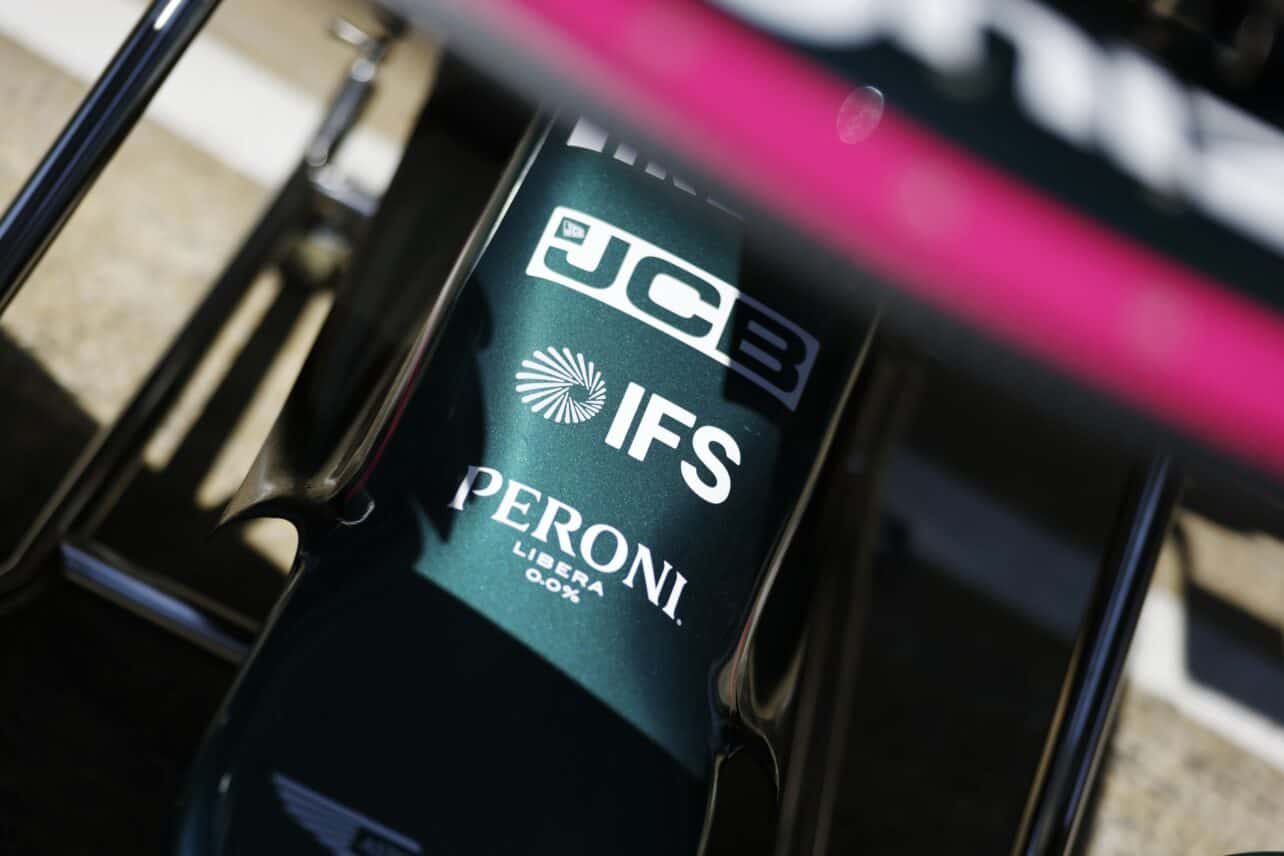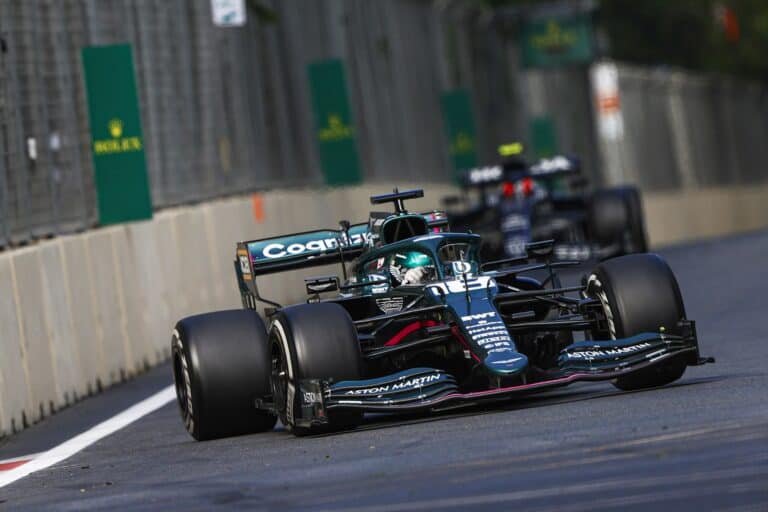IFS started working with the Formula One known today as Aston Martin Cognizant Formula One Team in 2019. What is the added value of a good ERP system in this sport? We asked Oliver Pilgerstorfer, the CMO of IFS.
When you hear the term ERP, your heart rate probably doesn’t immediately go up. At least, not because you associate it with something exciting that gives you a jolt of positive energy and adrenaline. More likely, the increase in heart rate will come because of the headaches that ERP projects regularly bring. However, in a Formula One team like Aston Martin Cognizant, it also plays an important role. In fact, with the advent of the cost cap this year, its role is only going to increase. Since Formula 1 involves very small margins between winning and losing, the right ERP system could be just that one percent extra to make a team more successful.
Things had to change
Before we get into what Aston Martin Cognizant uses IFS’s ERP system for, a brief history of the Formula One team’s origins. The current Aston Martin Cognizant is the successor to the eye-catching pink cars that drove around the race tracks in recent years: the cars of Force India and later Racing Point. That team was in a relatively bad shape when Lawrence Stroll, the father of one of the team’s current drivers, Lance Stroll, took over in 2018. Starting at the beginning of the current season, Aston Martin has stepped in, which has caused the pink color to give way to “old-fashioned” Aston Martin Racing Green.
From the outset of Stroll’s takeover, it was clear that solid investments would have to be made. The team itself was relatively small, with about 400 people, but the IT environment also needed an update. There was no full-fledged ERP system in place, for example. The team used Excel and the telephone mainly to get the parts together to build the cars, but also for things like spare parts, Pilgerstorfer indicates. Hence, IFS came on board in 2019, as a technology provider, resulting in its logo on the cars.

Why IFS?
In its search for an ERP system, the Formula One team now called Aston Martin Cognizant looked at several providers. It certainly wasn’t the case that the team automatically chose IFS, Pilgerstorfer points out. You might expect that, in a deal where there is a value exchange like between Aston Martin Cognizant and IFS: one delivers the technology, the other the exposure. But the Formula 1 team, after looking at several competitors of IFS, chose IFS because of the quality of its platform, Pilgerstorfer states.
An important reason for choosing IFS is that IFS specializes in a few specific industries in particular. Automotive is one of them. This means that it is possible to purchase an ERP package more or less built with that industry – among others – in mind. As a result, Aston Martin Cognizant went for IFS Apps 10. According to Pilgerstorfer, little to no specific adjustments were needed to make it work well for the team. That’s obviously important and certainly an advantage of a vertically focused approach. After all, you can now update much faster and remain more or less evergreen.
Aston Martin Cognizant, then, isn’t running the very latest version of IFS’s offering. That’s IFS Cloud, but that wasn’t available yet at the time of the decision. The team does, incidentally, run IFS Apps 10 in Microsoft Azure. A possible switch to the next generation, which is not called IFS Apps 11 but IFS Cloud, should not cause any significant problems in the future. The scalability of Apps 10 on Azure does already ensure that it can keep up with team investments. For example, the team of about 400 has now grown toward about 700 people.
ERP is just one part of IFS Applications (and its successor IFS Cloud). It can also be used for Enterprise Asset Management, including Field Service Management. There are also specific IoT components and CRM is part of the platform. As far as we understand it, it is mainly the ERP part that Aston Martin Cognizant uses.
How does Aston Martin Cognizant use IFS?
Without a doubt, one of the main reasons for the Aston Martin Cognizant Formula One Team to start using an ERP package was to be able to manage the car building process much better. Not only the initial assembly of the cars, insight and management around spare parts is also important.
The importance of the project-oriented approach of the IFS Apps platform should also not be underestimated, Pilgerstorfer points out. Whereas many ERP solutions take cost as their starting point, IFS works from a project perspective. This results in a better way of working, especially for customers in manufacturing. In the manufacturing industry, you often work with many suppliers of parts for the products you make. For each project you have a planning. This planning has serious implications for the delivery of the parts, and vice versa. Having the project, not the cost, as the starting point, then, makes a lot of sense.
The importance of the project-based approach, by the way, is not something IFS itself highlights. We have also spoken to many IFS customers in recent years. More or less unanimously, this feature comes out as the main reason for using IFS.
Importance of ERP increases with introduction cost cap
Since this year, the international motorsport federation FIA has introduced a cost cap per team. That is the amount of money a team is allowed to spend on building the cars and developing them during the year. This year that amount is 145 million dollars, next year it will be 140 million and the year after 135 million. If you go over, penalties follow.
A cost cap makes the usefulness of a properly functioning ERP system greater than it already was in two ways. First of all, you can very quickly demonstrate whether you have stayed within the set limits. That is, you can provide proof at the push of a button. What is more interesting, as far as we are concerned, is that with the right use of ERP it is also possible to see in great detail and in a predictive manner how much you have to work with for the season in terms of finances. You can take the FIA’s rulebook, so to speak, and add that to the platform.
When it comes to costs you incur as a Formula One team, it’s not just about parts. The cars are constantly being developed throughout the season. This also involves the necessary costs. If you know in advance what you have to work with in the budget, you can adjust accordingly.
Not only the cars, also the factory
With the growth of the Aston Martin Cognizant Formula One Team came the need for a larger factory. The current factory near Silverstone will be demolished and the new one will be built next to it. The site of the old factory will then become the parking lot. Also for the construction of the new factory Aston Martin Cognizant can use the software of IFS. Coincidentally, construction is also an important market for IFS.
Will ERP win races for you?
Asking about the role that software such as that from IFS plays in the final outcome of the Aston Martin Cognizant team, Pilgerstorfer says that you shouldn’t underestimate it. He is not afraid to say that the team’s performance is better than before because of the use of IFS Apps. He particularly emphasizes the specific expertise of IFS in the automotive industry. Other players in this market simply don’t have that. IFS can offer more in that area.
Please note that Pilgerstorfer certainly does not want to claim here that IFS deserves all the credit for any success of Aston Martin Cognizant in Formula 1. Ultimately, the performance of the team itself is the deciding factor. IFS can help by providing admittedly important data and smart software, but in the end the team has to do it. As yet, Aston Martin Cognizant has not won any races, by the way (Sebastian Vettel has already finished second once). Racing Point did win the Russian GP last year. With the cost cap in place, Aston Martin Cognizant Formula One Team now at least has the information needed when it comes to the build process to comply with the financial rules, but also to optimize the build process itself.

